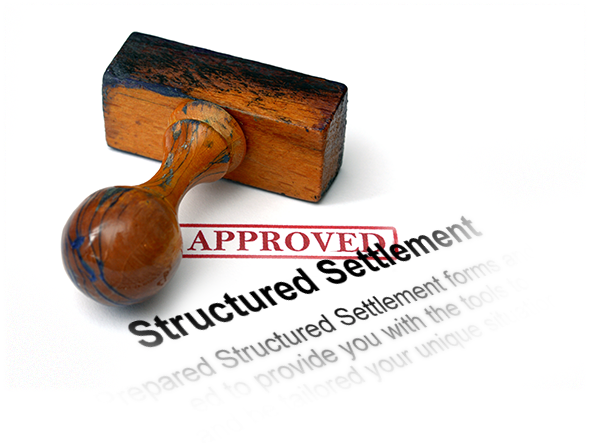 If you are the beneficiary of a structured settlement as the result of a personal injury, medical malpractice, or workers' compensation case, you may have seen ads that promise "cash for your structured settlement", and be wondering if you should cash out. Even if you really need the money, you should carefully examine your options, and try to determine if selling your settlment is truly in your best interest.
If you are the beneficiary of a structured settlement as the result of a personal injury, medical malpractice, or workers' compensation case, you may have seen ads that promise "cash for your structured settlement", and be wondering if you should cash out. Even if you really need the money, you should carefully examine your options, and try to determine if selling your settlment is truly in your best interest.
Promises of Cash Payment for your Structured Settlement
A growing number of companies offer "fast cash" or "cash payment" for structured settlements. You should try to make sure that the company you choose to work with is on sound financial footing, such that you are not at risk for default on your promised cash payment after you sign over your annuities. You should also make sure that your company is competent and ethical, and won't try to come back at you if they later have problems obtaining your settlement payments after you are cashed out.
Before You Enter Into a Structured Settlement
Not all plaintiffs have the luxury of choosing whether part or all of their settlement will be structured. For example, a number of states require that certain future damages awards be paid in installments as opposed to in a lump sum, or permit a defendant to petition the court to pay future damages in installments. However, where a plaintiff can choose between a structured settlement or lump sum payment, care should be taken to make the correct choice.
Benefits of a structured settlement include possible tax avoidance, preservation of settlement funds for future care and future needs, and coordination of settlement proceeds with other benefits or public assistance.
Disadvantages of a structured settlement include possibly not having the available funds to make necessary purchases, or even desirable discretionary purchases, high commissions on the purchase of annuities, and a low yield as compared to other investment options. Also, if payments are equal, each payment will actually be reduced in real value as compared to the prior payment due to the effect of inflation.
Considerations Before Selling Your Settlement
Factors which should be taken into consideration before selling a structured settlement include:
Legal Restrictions - Due to the nature of some settlements, there may be legal restrictions on their sale.
Contractual Restrictions - Some structured settlements and annuities are set up in a manner which makes it difficult to impossible to sell them.
Tax Considerations - A structured settlement may offer considerable tax savings to an injured plaintiff, whereas a cash payment may subject the plaintiff to a significant, immediate tax liability.
Low Offers - Sometimes a buyer of structured settlements will make an unreasonably low offer for the settlement.
These factors are outlined in greater detail in this associated article, "Selling Your Structured Settlement".
Can a Lawyer or Accountant Help
While a lawyer may not be able to help you decide if you should sell your settlement, a lawyer or financial professional can help you figure out the short- and long-term financial consequences of selling your settlement. They may also be able to help you determine a reasonable selling price for the settlement. A lawyer can also review a proposed contract for the sale of your structured settlement to make sure that you are adequately protected in the event of future complications.
Depending upon your circumstances, you may require a court to approve the sale of your structured settlement, and a lawyer may be able to assist you with that process.

0 comments
Post a Comment